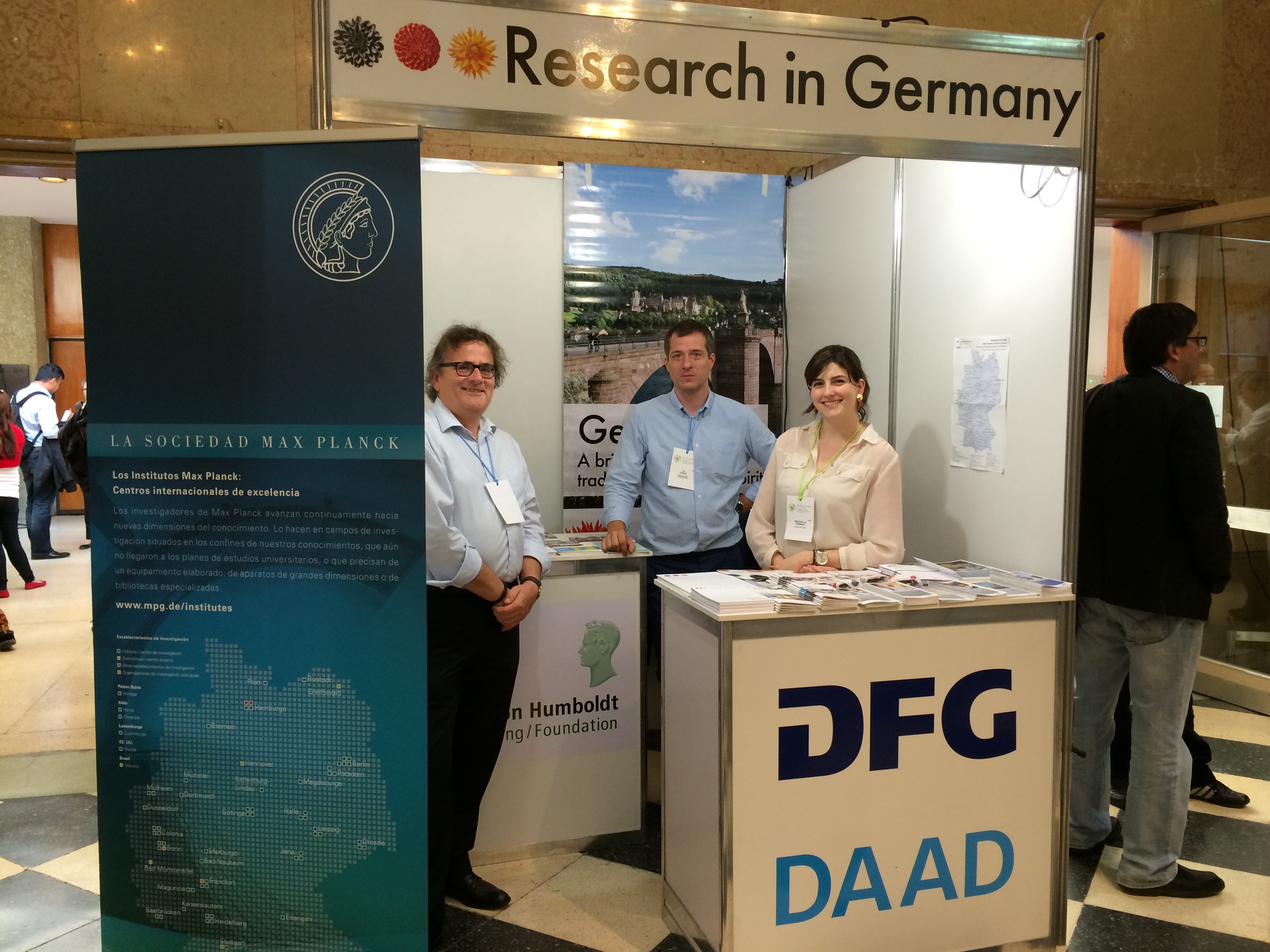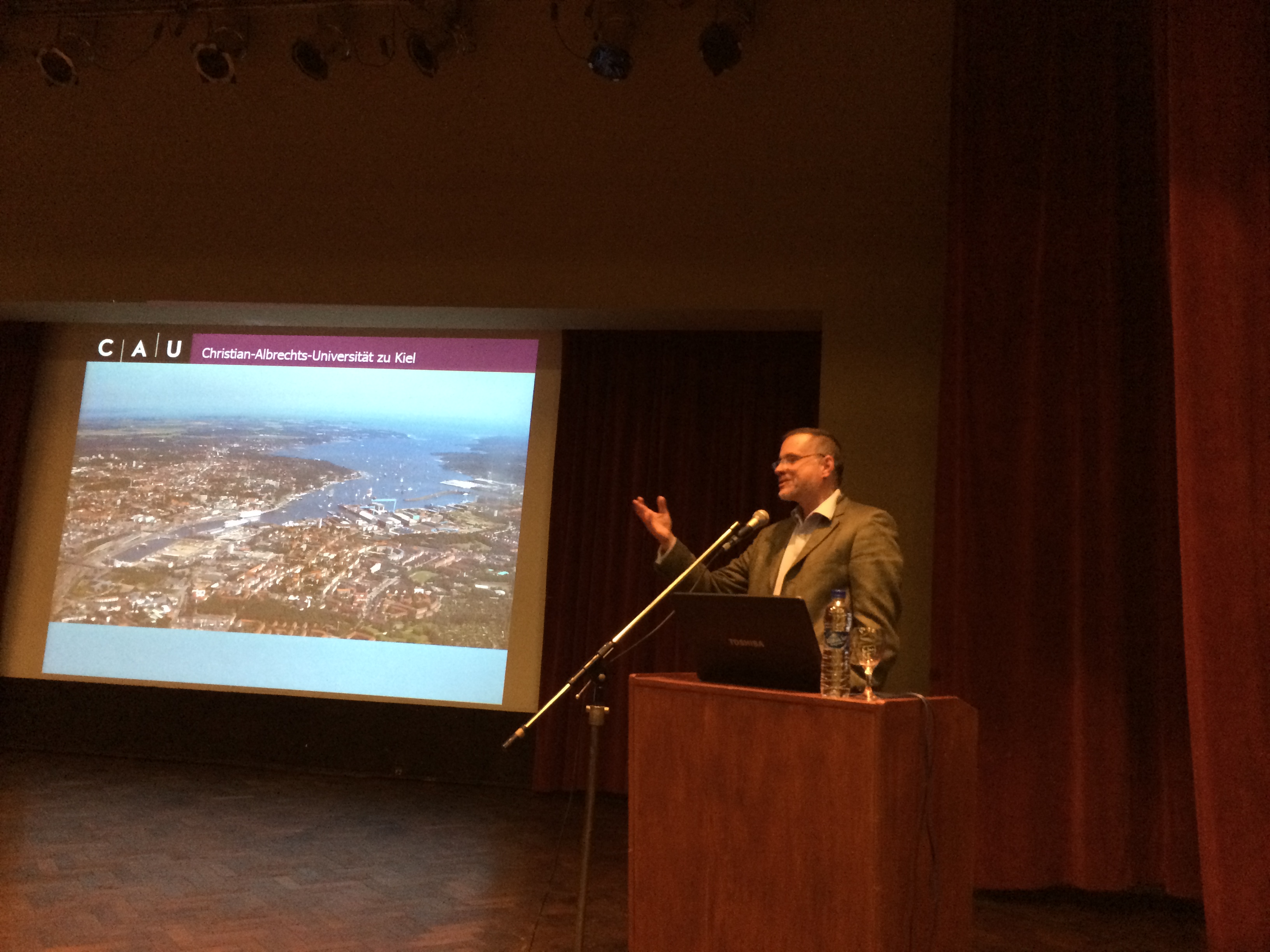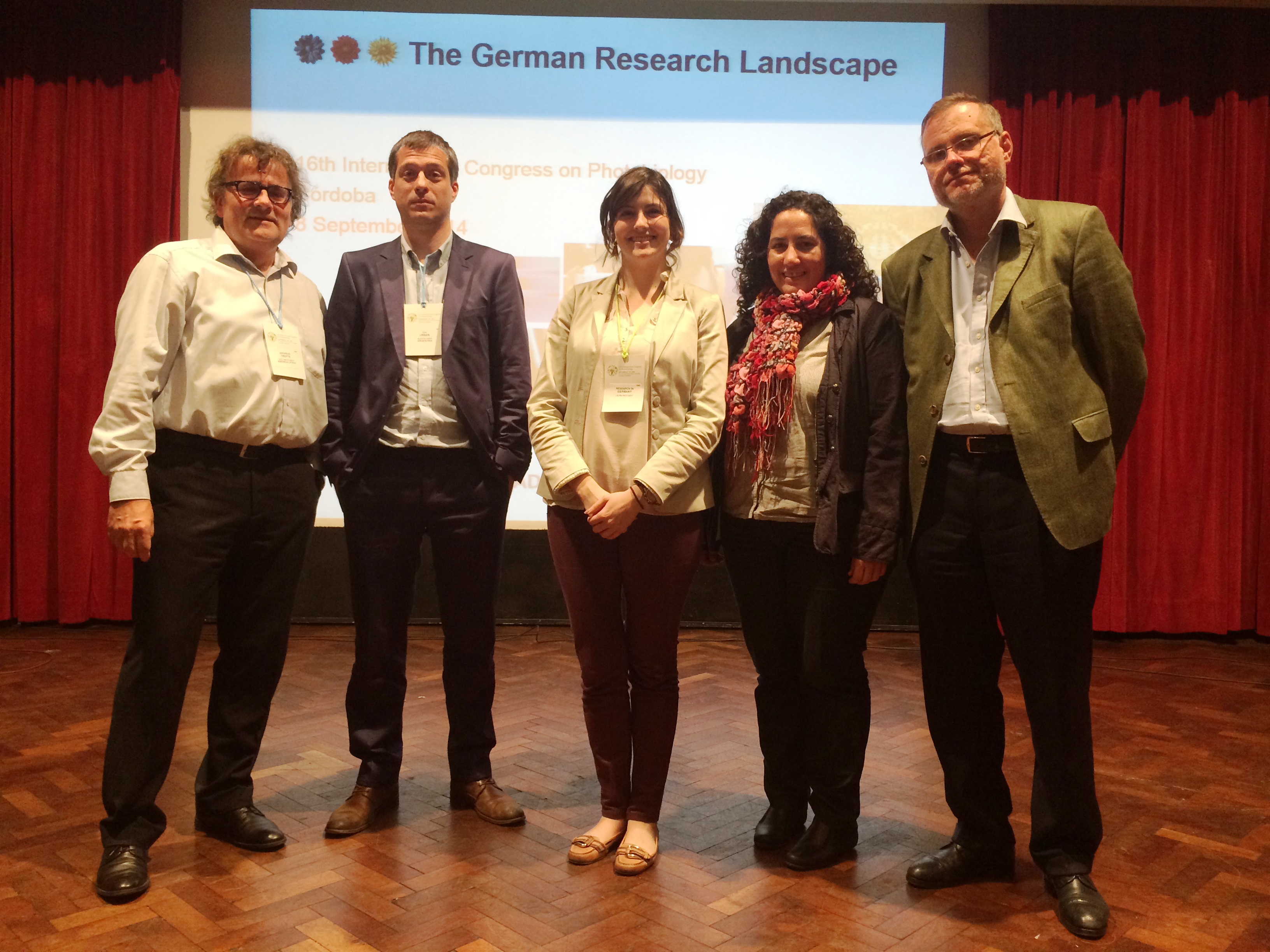DFG Attends the International Congress of Photobiology in Argentina
(19.09.14) At the 16th International Congress on Photobiology in Cordoba an event by the "Research in Germany" campaign was held, organised for the first time as part of a conference in Argentina.

From left to right: Dr. Andreas Trepte (MPG), Dr. Urs Urban (DAAD) and Laura Redondo (DFG) provided information at the "Research in Germany" stand
© Dr. Barbara Spielmann/MPG
The congress, which is held every five years, is attended by high-calibre researchers in photobiology. Approximately 500 participants from 38 different countries took part. From 7-10 September 2014, the DFG, the German Academic Exchange Service (DAAD), the Alexander von Humboldt Foundation (AvH) and the Max Planck Society (MPG) provided information about the scope and opportunities for research in Germany.

Prof. Dr. Thomas Schwarz presents Kiel University
© Dr. Barbara Spielmann/MPG
The DFG invited two guest speakers from German institutions to attend: Prof. Dr. Thomas Schwarz (Kiel University), who gave a lecture on "Photoimmunology", and Prof. Ernst Bamberg (Max Planck Institute of Biophysics), who talked about “Microbial Rhodopsins: Molecular Mechanism and Optogenetics”.

The German delegation after the "Research in Germany" information session (from left to right): Dr. Andreas Trepte (MPG), Dr. Urs Urban (DAAD), Laura Redondo (DFG), Dr. Julieta Mateos (Humboldt Foundation) and Prof. Dr. Thomas Schwarz (Kiel University)
© Dr. Barbara Spielmann/MPG
On the second day of the conference, the DFG, the DAAD, the Humboldt Foundation and the MPG provided information on their own institutions and funding programmes for international collaboration in a special session. Prof. Schwarz talked about internationalisation at Kiel University and at the Department for Dermatology, which he heads. The audience was then given the opportunity to ask the lecturers directly about funding opportunities for foreign researchers and about bilateral collaboration.